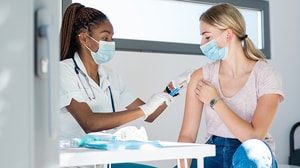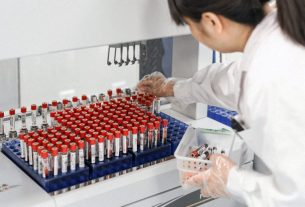Many US adults still intend to forego getting an annual COVID vaccine. Approximately 60% of individuals indicated they are unlikely to receive a booster shot this year, even though the CDC advises everyone to do so, based on findings from a recent survey conducted by the Pew Research Center. When inquired about the reasons for not taking an updated COVID vaccine, 61% mentioned not perceiving the need for it as a major factor, while 60% expressed concerns about potential side effects. The expense influenced 14% of individuals, while 46% of respondents indicated a general reluctance towards receiving vaccines. Variations in vaccination intention were observed depending on the individual’s age. In the age group of 65 and above, 27% have already received the vaccine, while an additional 27% are inclined towards getting the shot. On the other hand, 45% have expressed reluctance to get vaccinated. Individuals in the age group of 30 to 49 years showed the lowest inclination towards receiving a COVID shot, with 66% indicating that they are unlikely to get vaccinated. Health officials recommend that individuals receive a COVID vaccine yearly, as they would a flu shot. This is because the vaccines are designed annually to address virus strains expected to spread widely. Additionally, immunity, whether acquired through prior vaccination or previous infection, diminishes as time progresses. Research indicates that vaccines can lower the risk of hospitalization or death from severe illness, especially in individuals with risk factors such as being older than 65 or having prevalent health conditions like diabetes, heart disease, and respiratory issues in the US. In the survey, 9593 adults were questioned about their plans regarding the COVID vaccine, specifically in relation to the recommendation made by public health officials regarding an updated vaccine for COVID-19. Do you anticipate receiving an updated vaccine, are uncertain about it, or have you already been vaccinated with the updated version? Data was collected for this survey through online and telephone methods between October 21 and October 27. The immunity provided by a COVID-19 vaccination typically becomes fully effective approximately two weeks post-administration, with the vaccines showcasing their highest efficacy over the subsequent three months. The article was first published on MDedge. com, which is part of the Medscape Professional Network.






